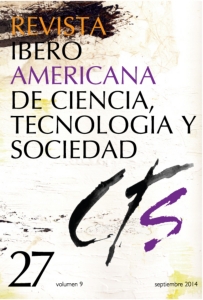Research evaluation in Argentine universities
Contexts, cultures and limitations
DOI:
https://doi.org/10.52712/issn.1850-0013-586Keywords:
Argentine universities, research evaluation, limitationsAbstract
The subject of research evaluation in Argentine universities requires an analysis within the historical and political context, of its system of science and technology, of the history of the institutions that constitute it, and the cultures of its different disciplinary communities. A conflictive process by nature, it brings into play relations of power and selective distribution of resources. Managing this process requires administrating a tension between two conflictive worldviews –one forged in the contribution to the discipline, and the other one oriented to market and society. However, to contribute with the construction of a society based in knowledge, this problem is minor compared to the need to reform the statutes that regulate the investigators’ agenda, the reorientation of funding instruments of innovation and the creation of systemic conditions for non-risk investments based in science and technology.
Downloads
References
AMERICAN SOCIETY FOR CELL BIOLOGY - ASCB (2013): “San Francisco
Declaration on Research Assessment”, Debate Universitario, vol. 2, n° 3.
MINISTERIO DE CIENCIA, TECNOLOGÍA E INNOVACIÓN PRODUCTIVA – MINCYT (2013): Indicadores de Ciencia y Tecnología, Argentina 2011, año 15, Buenos Aires.
SCHEKMAN, R. (2014), “Por qué revistas como Nature, Science y Cell hacen daño a la ciencia”, Debate Universitario, vol. 2, n° 4.
Downloads
Published
How to Cite
Issue
Section
License
Copyright (c) 2024 CC Attribution 4.0

This work is licensed under a Creative Commons Attribution 4.0 International License.
All CTS's issues and academic articles are under a CC-BY license.
Since 2007, CTS has provided open and free access to all its contents, including the complete archive of its quarterly edition and the different products presented in its electronic platform. This decision is based on the belief that offering free access to published materials helps to build a greater and better exchange of knowledge.
In turn, for the quarterly edition, CTS allows institutional and thematic repositories, as well as personal web pages, to self-archive articles in their post-print or editorial version, immediately after the publication of the final version of each issue and under the condition that a link to the original source will be incorporated into the self-archive.











